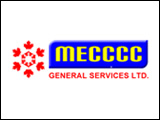
Boyd Penner addressing weanling producers at a meeting in Steinbach last April when it became clear that the weanling market was collapsing and collapsing fast.
One moment Canadian pork producers breathed a collective sigh of relief and the next, a sigh of heaviness as the uncertainty of M-COOL set in once again.
First, the former Bush Administration released the final rule for U.S. mandatory Country of Origin Labeling (COOL) which gave Canadian and American livestock producers the certainty and hope that this would work out after all.
Then the headline shrieked “COOL” Rule Suspended by the new President Obama and his Administration, and placed a hold on the Country of Origin labeling or “COOL” mandate of fresh food.
The word came out quickly that President Obama would delay all pending and last minute regulations of the Bush Administration to include the COOL rule that is part of the 2008 Farm Bill.
“COOL” would require all retailers who sell meat, fish, nuts, and produce to properly label where the item was produced or grown. However, the suspension of that rule means for the most part a review that could tighten the rule and lead to less livestock to enter the United States.
Producers started the labeling process in September and fines were to be given for unlabeled items starting in April. For now however, the suspension creates even more uncertainty than before, which brings into question the future of livestock movement into the United States.
“This may not be good news as a review could also mean more stricter COOL rules may be coming,” John McGregor, Farm Production Advisor for MAFRI in Steinbach. Of course the rule affects mostly the hog and cattle producers.
Boyd Penner of Southeast Marketing told of how the mood changed at a hog industry meeting in Minneapolis on the day President Obama suspended the rule.
“Before hand there was much optimism – the packers would take the Canadian hogs and things would be fine,” said Penner following the meeting on January 23. “When Obama made the announcement everyone became worried that some U.S. customers who had not bought for a long time had bought Canadian hogs now and were sorry they had.”
The exporter of Canadian hogs who work on behalf of many independent Canadian producers said even the customers in Canada who were going to add more farrowing crates to hopefully cash in on the Bush clarified rule to accommodate the extra demand, were now nervous.
“Since the latest freeze, many of those Canadian customers have given up again because this just does not look good,” he said.
Some time ago, Penner said the Canadian industry may well have to get used to the fact that shipping into a Canadian market means no live hogs going south but would have everything processed in Canada and sell it as pork and pork products.
“Maybe it’s time the industry gets together to build another packaging plant or form some kind of co-op and get a packer built for independents and the extra Isoweans, and get our own meat market established and start working that way,” said Penner. “The export market for Canada should be very favorable, especially with the exchange rate. If the American Government doesn’t want to work with us, then we have to build our own packer, and move from there.”
Florian Possberg, the Canadian Pork Council’s (CPC) Representative on the Board of Directors of Canada Pork International (CPI) said before the suspension, the major packing plants such as Cargill, Hormel, Tyson, all had concerns about whether they could incorporate Canadian hogs into their production runs.
The uncertainty had also reduced U.S. demand for Canadian early wean and feeder pigs which resulted in discounts for Canadian feeding pigs in the U.S. since September when the interim rule took effect.



